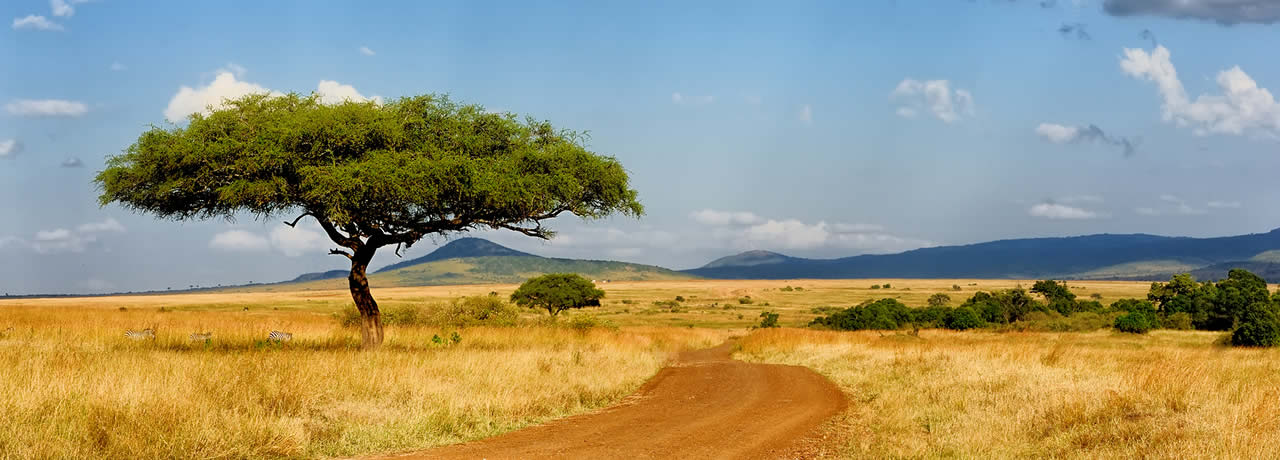With great pleasure Action For Nature announces its 2010 International Young Eco-Hero Awards, which recognize young people 8 to 16 years old for their environmental achievements. We hope the accomplishments of these outstanding young people will inspire many others to preserve and protect the Earth upon which all life depends.
Winners are divided into two groups, age 8-13 and 14-16.
Age Group 8 - 13
First Place
Alexander
Age 13
Maryland, USA
Protecting horseshoe crabs
Digging in the sand one day on the beach, Alex found clear orbs with “alien-looking creatures swimming inside.” Curious, he rushed home and researched them. He discovered that they were the unhatched eggs of the Atlantic horseshoe crab, Limulus polyphemus. Horseshoe crabs have lived on the earth for at least 450 million years. These animals are especially important because their blood contains a substance called Limulus amebocyte lysate, or LAL, that can save human lives by detecting harmful bacteria in tests on surgical instruments and prescription drugs.
Alarmed to learn that the horseshoe crabs are threatened by human activities, Alex wanted to help protect them. He began participating in the Maryland Department of Natural Resources project called “Horseshoe Crabs in the Classroom.” He also created an awareness campaign, Planet Horseshoe Crab, with logo and information cards to spread the word that we share this ecosystem – we’re all connected.
Wanting to do even more, he aided in creating the Chesapeake Conservation Center to protect the horseshoe crabs, and helped fund it with birthday and holiday savings. He also created horseshoe crab information cards and T-shirts. To continue researching the crabs, he received an Aquatic Research Education grant.
Alex also met with the mayor to talk about how he could spread awareness to local residents and encourage them to help protect the crabs. The mayor generously supported Alex’s efforts and had two of his information boards made and installed at a museum beach and nature park.
Last fall Alex developed a Planet Horseshoe Crab curriculum, and the Annapolis Maritime Museum invited him to teach Horseshoe Crab ecology to first through eight graders.
Alex’s work continues. In addition to conducting classes, he manages his organization and conducts surveys on the horseshoe crabs. He organized and runs a Naturalist Club to connect people with nature. He is the student advisor for The Terrapin Institute, working to protect the dwindling sandy beach habitat critical to the preservation of horseshoe crabs and other species. Alex also created another sign for the beach near his house – the beach where he first found the clear orbs, the eggs that started it all.
FIRST PLACE
Felix
Age 12
Germany
Inspired youth worldwide to plant over one million trees
Felix was inspired by the work of 2004 Nobel Peace Prize recipient Wangari Maathai of Kenya, who planted 30 million trees in 30 years. Felix told his classmates, “Let’s get children all over the world to plant one million trees in their countries.”
What started off as a small class presentation quickly grew into a global youth effort to protect the environment. Felix presented to other classes and schools in Germany, recruiting youth for his cause. Invited to speak at the 2009 United Nations Environment Programme (UNEP) Tunza Conference in South Korea, he urged other youth to take up the cause around the world. Five hundred youth from 54 countries responded.
Felix joined the United Nations organization, Plant-for-the-Project, where he now serves as a spokesperson. He was elected by youth to serve on the Tunza Junior Board, which advises UNEP on how to best appeal to and educate youth around the planet about environmental issues.
Already one million trees have been planted in Germany, and Felix continues his international effort to encourage young people in other countries to match his goal.
SECOND PLACE
Sarah
Age 10
New York, USA
Supports environmental causes through her lemonade stand and website
Sarah Connor doesn’t like seeing things in trouble, she said. That’s why she started her lemonade stand when she was five years old. She’s “saving the earth one cup at a time,” donating all of the proceeds to various non-profits and causes, including international disasters.
Sarah grew concerned about the environment after reading “An Inconvenient Truth” when she was 7. She encouraged her family to lead an eco-friendly lifestyle. Then, for Earth Day 2009, she decided to turn her lemonade stand into a non-profit organization called Project LemonAid. Her current goal is to raise $4,000 to replace twenty trees in her town that were cut down.
In addition to regularly selling lemonade – and hot chocolate in the winter – and talking with customers about the environment, Sarah reaches out to others by making presentations to local community groups. She’s solicited donations from local organizations and toy companies, and held raffles to raise money.
She also has a Web site, http://www.projectlemonaid.org/, which provides youth with letters they can send to world leaders, as well as information about the environment. She also filmed and edited a video for a national Parent Teacher Alliance arts competition called “Beauty is Disappearing,” and won first place in her county.
Sarah believes that taking care of the earth is a big responsibility.
Second Place
Liam
Age 11
Colorado, USA
Started a Community Garden Project
Every day on his way home from school, Bane passed an unused patch of land full of weeds. The lot belonged to a neighbor and Bane saw potential. He wanted to turn the lot turned into a community garden.
With the support of his family, Bane received permission to use the land to start a large garden project. He received help from friends, and together they leveled the land and planted a sustainable, organic garden that serves both the community and the local wildlife. He also started community composting, making sure no weed killers or synthetic fertilizers were used which would have contaminated local water supplies
The outskirts of the garden feature plants for local wildlife; at times he could count as many as fifty birds feasting on the sunflowers. And the fenced inside serves as a vegetable garden. The community shares the bountiful harvest which is so much better than food purchased from far away sources.
“I’m most proud of having this garden and having all the support we had,” Bane says. “I just enjoy giving.”
Next year he will enlarge the garden, and will also include a flower bed for the enjoyment of senior neighbors.
Honorable Mention
Brandon
Age 9
Florida
Raising funds, increasing awareness about chimpanzees
Brandon wanted to have a pet chimpanzee. But after learning about the abuse of chimpanzees in medical research laboratories and in the entertainment industry, he changed his mind. He discovered that like humans, it’s hard for chimps to be separated from their families and homelands. He knew how that felt because his father was working overseas.
During his research Brandon learned about the nonprofit organization Save the Chimps, which provides twelve islands in Florida where chimps can live in safety and comfort. He decided that instead of getting a pet chimp, he would raise money to help transport a chimp from a biomedical research laboratory to the sanctuary.
Since December 2009, Brandon has raised more than $1,500 to enable chimps to be transported to the sanctuary. Brandon will continue his fundraising until he meets his target of $2,500.
In addition to fundraising, Brandon started a blog to educate people about chimpanzees and how they are mistreated by trainers and in laboratories. Brandon wrote his Congressperson in support of the Great Ape Protection Act, and gathered signatures for a petition supporting the Act. He has also collected blankets and treats to mail to different sanctuaries. “I have learned,” he says “that chimps have been in labs for years and people need to help them.”
http://www.firstgiving.com/migrateboy
Make a Chimp Smile (Facebook)
HONORABLE MENTION
Aitan
Age 13
California, USA
Distributed worldwide a song he wrote and composed about global warming
Aitan combined his love for the environment and animals with his love for music. To raise awareness about climate change, he wrote and composed the song “100 Generations,” which is about the threat of global warming. He has recorded children all over the planet singing it.
He started a non-profit organization called KidEarth to encourage youth around the world to sing “100 Generations” and to learn about climate change. He provides the lyrics and the music on his Web site, www.kidearth.us. Children from many countries, including Botswana, Guatemala, Ethiopia, France and Taiwan, are singing his song. He also sells his recording of the song and donates the profits to environmental charities.
“My project persuades people by creating something that they will stop and listen to and remember,” he says.
Age Group 14 - 16
FIRST PLACE
Sarah Jo
Age 16
Texass, USA
Provided a green future for youth through building an Eco-Center
In the spring of 2008, Sarah Jo wanted to create a project that would show her love and respect for the earth, and she had a big vision. She not only wanted to provide teachers with an environmental curriculum, but she also wanted to build an environmental education center at a camp in the beautiful area of West Texas where she lives. Sarah Jo believes we must let children know that they hold the power of the future and can make the world a better place.
She knew she couldn’t tackle the job alone, so she partnered with adults, youth groups and local companies, and formed two advisory boards to help guide her. Working with EarthCo Building Systems, Sarah Jo spent hundreds of hours over two years helping to build the earth block construction eco-center, working in what she describes as the “schizophrenic weather” of Texas. She learned to drive a back-hoe and dump truck, and she worked on the construction tasks alongside the builders. She also recruited thousands of people to help her build and donate to her cause. Together they volunteered more than 1,000 hours of work.
When the eco-center was completed in the spring of 2010, she named it the Lorax Lodge, after a Dr. Seuss character.
“Even though Dr. Seuss used all these crazy words, he really knew what he was talking about,” Sarah Jo said. “He knew how to get kids involved.”
Sarah Jo hopes that the eco-center, as well as the teacher activity guide and the nature trail she has developed, will inspire youth to take action to protect nature long into the future.
“I always wanted to show kids that they could make a difference,” she said.
Second Place
Eric
Age 14
Utah, USA
Removing invasive plants
Eric was walking along a nature trail near his home in Utah when he spotted a plant called Dalmatian Toadflax. His sister, a naturalist, explained that the seemingly benign plant was actually an invasive, non-native species that posed a threat to native plants and local wildlife.
Eric loves all the wildlife around his home, including deer, rabbit, squirrel, fox, quail, pheasant, hawks and songbirds. Wanting to do something to help his local environment he researched five invasive plant species in his area, and learned how to properly remove them.
He then started a project called Plant Patrol, removing invasive plants in his free time. But he soon realized he needed others’ help in order to remove as many invasive plants as possible.
Eric then decided to start a public awareness program as part of Plant Patrol. He reached out to his friends, family, neighbors, and local community groups, such as the 4-H Club and Girl Scouts, teaching everyone how to identify and remove invasive plants. To date, Eric has taught more than 34 youth and adult groups, and more than one thousand individuals have donated their time to help remove non-native plants.
Second PLACE
Elodie
Age 16
Ivory Coast
Ended destructive bush fires
hen a bush fire roared out of control and burned down her uncle’s cocoa plantation in the Ivory Coast, her West African home, Elodie knew she had to take action. Bush fires are traditionally used as an agricultural tool in her community, and Elodie knew she couldn’t fight that. But she could educate the community about how to control the fires and when to avoid starting them.
Starting in November, 2008, Elodie recruited 45 friends and fellow students and formed an environmental club focusing on the bush fires. Together they visited five local villages around Taboo City. They gave presentations to more than fifty people in each village and encouraged the villages to form committees to oversee bush fires. Each village agreed, and since the program started, no bush fires have demolished crops or homes.
Today Elodie and her environmental club are focusing on other issues, including how to maintain a healthy environment. Elodie plans to extend the environmental club to other schools and towns in her country.
ThirD PLACE
Gates
Age 15
Virginia, USA
Keeping water supplies safe from pharmaceuticals
When Gates’ grandfather passed away a year ago, his family wasn’t sure how to dispose of his unused medications. One family member suggested flushing the pills down the drains. But Gates researched the problem, and discovered that doing so would contaminate the local water supply.
On a mission to find a better way to dispose of the pills, Gates reached out to many organizations, including the local landfill, hospital, the Drug Enforcement Agency, the Environmental Protection Agency, and the Virginia Board of Pharmacy. He did his own extensive research, which confirmed that the disposal of pharmaceuticals causes water contamination and impacts the health of humans and wildlife.
“It became more and more apparent that no one had a solution,” he said.
So Gates took matters into his own hands. Partnering with a local agency and a reverse drug distributor, he founded a take-back program called Stop Throwing Out Pharmaceuticals, or STOP. He has collected hundreds of pounds of pharmaceuticals and delivered them to the reverse drug distributor, which incinerates the drugs, creating usable energy in the process.
Gates has also educated the public by creating brochures and reaching out to people at health fairs, the local library, and the like. His long-term goal is to see legislation pass that will provide the public with a safer way to dispose of unwanted medications.
Third Place
Muthamizh
Age 15
India
Campaigning against global warming and climate change
Muthamizh lives in the coastal state of Tamilnadu near the Bay of Bengal in Southern India. After seeing a program at her school on global warming and climate change, she was inspired to do something. She formed and led a team that conducted street theater shows once a month, gave out flyers, and provided youth with saplings to plant.
Since January 2009, she has helped reach out to nearly 4,000 people, and has inspired other youth to form 14 environmental clubs. In the coming year she plans to work with her team to educate twenty more villages about global warming. She will help distribute 10,000 saplings to be planted, and start an anti-plastic campaign. Through her work she has learned from the village people about their faith and relationship to the environment.
Honorable Mention
Connor
Age 14
Oklahoma, USA
Replacing Trees
When he was in middle school, Connor created a plan to help the environment for a science class assignment. “But that got me thinking,” he said, and that summer he decided to start a real project, reforesting Tulsa, Oklahoma, which had lost about 20,000 trees in an ice storm two years earlier.
Connor recruited two friends, and together they started GreenTree of Tulsa. Their first major task was to get some trees. They wrote over 20 letters and made dozens of phone calls asking for help. But things were looking dismal. “We heard back from three people,” Connor said. “And all three said they couldn’t help us.”
But Connor wouldn’t give up. He discovered Up With Trees, a local non-profit organization, and formed a partnership with them. To date, Connor and his friends have planted more than 400 trees around Tulsa, including about 100 trees at a government housing site. Additionally, they have educated elementary school children by doing presentations and providing youth with 600 saplings to plant.
Project GreenTree of Tulsa continues, and Connor and his team will be planting more trees this year.
http://greentreeoftulsa.blogspot.com/
Honorable Mention
Asad
Age 16
Pakistan
Presented an environmental education program to hundreds of students
Alarmed by the poverty and health problems in his native Pakistan caused by over-consumption of natural resources and lack of cleanliness, Asad started an environmental awareness campaign. He wanted to show other youth ways they could preserve precious resources such as drinking water, and other things they could do to take better care of the environment.
Asad has successfully reached out to hundreds of students, teachers and community members. With the help of four friends, he has delivered interactive presentations, facilitated group discussions, taken youth into the field, and developed posters for youth and adults. He has raised awareness about the use of dirty water for vegetable farming and for drinking water for domestic animals, about the creation of air pollution by diesel fumes and about the need to reduce the use of chemicals and pesticides. He is also campaigning to stop people from wasting water and to properly dispose of garbage. He is hoping for additional funding to continue his awareness campaign.
HONORABLE MENTION
Jordyn
Age 15
Wisconsin, USA
Founded a local chapter of a pharmaceutical take-back program
They told her she was too young to make a difference. They said she was too young to collect pharmaceuticals, too young to coordinate a take-back program in her community. She proved them wrong.
In spite of her youth, Jordyn successfully proposed and received permission to create a P2D2 chapter in Wisconsin in 2009. The P2D2 program, with chapters in several states, focuses on educating people about how pharmaceuticals dumped into the water supply or thrown away with garbage harms humans and other living creatures. The program also provides a new means for people to dispose of their unwanted drugs through take-back drives.
For her first take-back drive, Jordyn recruited dozens of volunteers and funders, including police officers, to oversee proper drug disposal. Jordyn spoke with the media, and prepared educational materials. She even recruited someone to dress up as the pill bottle mascot. The drive, held in September, 2009, was a massive success, resulting in the collection of hundreds of pounds of unwanted medications.
Jordyn serves as a mentor for other youth who want to start P2D2 programs in their communities. Recently she raised funds to install a permanent pharmaceutical collection container in her local police station.
















